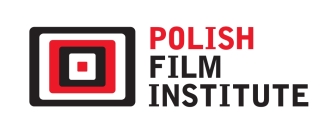Contemporary Theories in Adaptation Studies: State of the Art and New Directions
Abstract
The article presents the methodological debate in contemporary adaptation studies, which has not been discussed in greater detail in Polish research. The author describes three trends characteristic of the latest adaptation theories: metatheoretical attempts to reframe the notion of adaptation, criticism of medium-specificity approach, opening up to cultural, social and economic contexts. According to the author, one of the greatest challenges that adaptation studies faces is to overcome the discipline’s division into textual and contextual research (which was noticed by Kamilla Elliott). A category that could link formalistic and cultural approaches is, as the author argues, the category of discourse, which has not been the subject of a broader debate within the discipline so far. Referring to the examples of the latest Polish film adaptations, the author indicates possible ways of applying the concept of discourse in comparative studies.
Keywords:
film adaptation, adaptation studies, formalism, cultural studies, discourse, contemporary Polish literatureReferences
Andrew, D. (1984). Concepts in Film Theory. Oxford: Oxford University Press.
Google Scholar
Bal, M. (2012). Narratologia. Wprowadzenie do teorii narracji (tłum. zbiorowe). Kraków: Wydawnictwo Uniwersytetu Jagiellońskiego.
Google Scholar
Bortolotti, G. S., Hutcheon, L. (2020). O pochodzeniu adaptacji: biologiczne przemyślenia o dyskursie wierności i „sukcesu” (tłum. M. Pytko). Tekstualia, 60 (1), ss. 9-26.
DOI: https://doi.org/10.5604/01.3001.0014.1357
Google Scholar
Casetti, F. (2005). Adaptation and Mis-adaptations: Film, Literature, and Social Discourses (tłum. A. Raengo). W: R. Stam, A. Raengo (red.), A Companion to Literature and Film (ss. 81-91). Oxford: Blackwell Publishing.
DOI: https://doi.org/10.1111/b.9780631230533.2004.00007.x
Google Scholar
Elleström, L. (2019). Rozpoznanie, konstruowanie i przekraczanie granic medialnych (tłum. F. Cieślak). Tekstualia, 58 (3), ss. 21-34.
DOI: https://doi.org/10.5604/01.3001.0013.6421
Google Scholar
Elleström, L. (2021). The Modalities of Media II: An Expanded Model for Understanding Intermedial Relations. W: L. Elleström (red.), Beyond Media Borders, t.1: Intermedial Relations among Multimodal Media (ss. 4-91). Cham: Palgrave Macmillan.
DOI: https://doi.org/10.1007/978-3-030-49679-1_1
Google Scholar
Elliott, K. (2014). Rethinking Formal-Cultural and Textual-Contextual Divides in Adaptation Studies. Literature/Film Quarterly, 42 (4), ss. 576-593.
Google Scholar
Elliott, K. (2020). Theorizing Adaptation. Oxford: Oxford University Press.
DOI: https://doi.org/10.1093/oso/9780197511176.001.0001
Google Scholar
Gaudreault, A., Marion, P. (2005). Transécriture and Narrative Mediatics: The Stakes of Intermediality (tłum. R. Stam). W: R, Stam, A. Raengo (red.), A Companion to Literature and Film (ss. 58-70). Oxford: Blackwell Publishing.
DOI: https://doi.org/10.1002/9780470999127.ch4
Google Scholar
Helman, A. (1998). Twórcza zdrada: filmowe adaptacje literatury. Poznań: Ars Nova.
Google Scholar
Hopfinger, M. (1974). Adaptacje filmowe utworów literackich. Problemy teorii i interpretacji. Wrocław – Warszawa – Kraków – Gdańsk: Ossolineum.
Google Scholar
Hutcheon, L. (2006). A Theory of Adaptation. London: Routledge.
DOI: https://doi.org/10.4324/9780203957721
Google Scholar
Kaczmarczyk, K. (2015). Narratologia transmedialna. Założenia, cele i wyzwania. Tekstualia, 43 (4), ss. 3-16.
DOI: https://doi.org/10.5604/01.3001.0013.4249
Google Scholar
Markowski, M. P. (2009). Badania kulturowe. W: A. Burzyńska, M. P. Markowski (red.), Teorie literatury XX wieku. Podręcznik (s. 536). Kraków: Znak.
Google Scholar
Masłowska, D. (2002). Wojna polsko-ruska pod flagą biało-czerwoną. Warszawa: Lampa i Iskra Boża.
Google Scholar
McFarlane, B. (1996). Novel To Film: An Introduction to the Theory of Adaptation. Oxford: Clarendon Press Oxford.
Google Scholar
McFarlane, B. (1999). Tło, problemy i nowe propozycje (tłum. S. Sikora). Kwartalnik Filmowy, (26-27), ss. 6-31.
Google Scholar
Murray, S. (2012). The Adaptation Industry: The Cultural Economy of Contemporary Literary Adaptation. London: Routledge.
DOI: https://doi.org/10.4324/9780203807125
Google Scholar
Ślósarz, A.(2021). Film w literaturze XXI wieku. Kraków: Universitas.
Google Scholar
Wagner, G. (1975). The Novel and the Cinema. New York: Rutherford.
Google Scholar
Winckler, R. (2021). Hacking Adaptation: Updating, Porting, and Forking the Shakespearean Source Code. Adaptation, 14 (1), ss. 1-22.
DOI: https://doi.org/10.1093/adaptation/apaa026
Google Scholar
Wysłouch, S. (1994). Literatura a sztuki wizualne. Warszawa: PWN.
Google Scholar
Authors
Robert Birkholcbeerek38@wp.pl
University of Warsaw Poland
https://orcid.org/0000-0002-5192-4997
PhD, Assistant in the Department of Comparative Studies at the Faculty of Polish Studies at the University of Warsaw. His particular focus of research is intersemiotic translation and the narrativity of literature and film. He published, among others, in Kwartalnik Filmowy, Tekstualia, Konteksty, Załącznik Kulturoznawczy, Rocznik Komparatystyczny, Studia Europaea Gnesnensia. Author of the book Podwójna perspektywa. O subiektywizacji zapośredniczonej w filmie [The Double Perspective. On Mediated Subjectivisation in Film] (2019).
Statistics
Abstract views: 432PDF downloads: 502
License
Copyright (c) 2022 Robert Birkholc

This work is licensed under a Creative Commons Attribution-NonCommercial-NoDerivatives 4.0 International License.
The author grants the publisher a royalty-free non-exclusive licence (CC BY 4.0) to use the article in Kwartalnik Filmowy, retains full copyright, and agrees to identify the work as first having been published in Kwartalnik Filmowy should it be published or used again (download licence agreement). The journal is published under the CC BY 4.0 licence. By submitting an article, the author agrees to make it available under this licence.
In issues from 105-106 (2019) to 119 (2022) all articles were published under the CC BY-NC-ND 4.0 licence. During this period the authors granted a royalty-free non-exclusive licence (CC BY-ND 4.0) to use their article in „Kwartalnik Filmowy”, retained full copyright, and agreed to identify the work as first having been published in our journal should it be published or used again.
Most read articles by the same author(s)
- Robert Birkholc, Narration and Sensual Focalization in „Pod Mocnym Aniołem” by Wojciech Smarzowski. On the Adaptation of Jerzy Pilch’s Book , Kwartalnik Filmowy: No. 111 (2020): Senses and Affects
- Robert Birkholc, On a Postmodern Highway. „Natural Born Killers” Years Later , Kwartalnik Filmowy: No. 107 (2019): Journey, (E)migration, Pilgrimage
- Robert Birkholc, A Different Approach to the Language of the Cinema , Kwartalnik Filmowy: No. 107 (2019): Journey, (E)migration, Pilgrimage
- Robert Birkholc, Polish-Style Self-Reflexivity , Kwartalnik Filmowy: No. 119 (2022): (New) Film Theory
- Robert Birkholc, Seweryn Kuśmierczyk’s Journey Into the Depths of Polish Cinema , Kwartalnik Filmowy: No. 93-94 (2016): American Cinema











